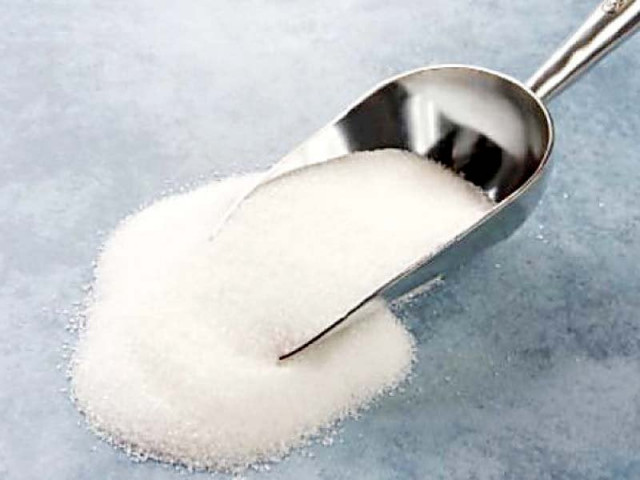Export of 140,000MT sugar approved
Cabinet committee okays deal on stable domestic prices, surplus stocks

The Economic Coordination Committee (ECC) of the Cabinet on Friday approved the export of an additional 140,000 metric tonnes of sugar, citing stable domestic prices and surplus stocks until the next crushing season. The ECC greenlit the immediate export of 100,000 metric tonnes and authorised negotiations with Tajikistan for the export of another 40,000 metric tonnes.
This is the second time in a month that the ECC has cleared an export summary for 100,000 metric tonnes of sugar, after an earlier proposal was rejected by the federal cabinet. Approximately a month ago, Prime Minister Shehbaz Sharif had refused to ratify the ECC's decision, instructing that the summary be reconsidered in light of retail prices, available stocks, and domestic demand until the new crushing season.
A finance ministry statement noted that the ECC approved the Ministry of Industries and Production's proposal for exporting 100,000 metric tonnes of surplus sugar. The ECC was informed that, according to Pakistan Bureau of Statistics (PBS) data, domestic sugar prices have been on a downward trend since July, while the available stock is sufficient to meet domestic demand until January 2025. After detailed discussions, the ECC approved the export plan based on the terms set in its June 2024 meeting.
Earlier, the ECC had already authorised the export of 150,000 metric tonnes of sugar. The Ministry of Industries continues to introduce sugar export summaries as additional agenda items, which are consistently approved by ECC Chairman and Finance Minister Muhammad Aurangzeb, despite concerns about the need for emergency decisions.
Last month, the government estimated total sugar stocks at 4.8 million metric tonnes. The ECC believes that after the export, 704,000 metric tonnes of sugar will still be available at the start of the new crushing season. The Cane Commissioner of Punjab has confirmed that the province will have a leftover stock of 89,000 metric tonnes once strategic reserves and consumption are accounted for.
While retail prices have exceeded Rs145 per kilogram, the ex-mill price remains below the threshold determined by the ECC. Exporters must now ensure that exports are completed within two months of receiving their quotas from cane commissioners, with export proceeds paid in advance through banking channels. Mills that have not paid sugarcane growers will not be permitted to export.
The ECC also withdrew its earlier decision to delink sugar exports from domestic prices. A government committee, chaired by Federal Petroleum Minister Dr Musadiq Malik and including Interior Minister Rana Sanaullah, has been established to review sugar prices.
Additionally, the ECC considered a Ministry of Industries and Production proposal to export 40,000 metric tonnes of sugar to Tajikistan. The committee approved the proposal in principle, but directed that the final sale agreement be presented for approval after further discussions with Tajik authorities. The Pakistan Sugar Mills Association will finalise the export agreement with the Tajik government, and the Trading Corporation of Pakistan (TCP), in conjunction with the Ministry of Industries and Production, will manage the process.
Tajikistan had requested 40,000 metric tonnes of sugar at preferential prices and sought financial assistance in the form of subsidies for Karachi port usage fees. These negotiations are expected to proceed in the coming weeks.
In other decisions, the ECC approved a Rs457 million supplementary grant for the construction of eight women's facilities in tribal districts. The committee also reviewed a Ministry of Interior proposal concerning the release of funds for Project Implementation Letters from the Frontier Corps in Khyber-Pakhtunkhwa (South).
At the meetings outset, Finance Minister Muhammad Aurangzeb provided an update on Pakistan's economic situation, citing macroeconomic stability across multiple sectors. He highlighted the strengthening of the rupee and foreign exchange reserves, which reached a 26-month high, buoyed by strong remittance inflows. Aurangzeb also mentioned that information technology exports have stabilised at $300 million per month, marking positive growth for the sector.
The finance minister further lauded the progress of the Roshan Digital Accounts, which saw $165 million in inflows in August alone. He also pointed to the country's current account surplus of $75 million in August, attributing the positive trend to declining oil prices, a weaker US dollar, and a 4.5% reduction in the SBP policy rate.
Aurangzeb stressed that Pakistan's rejection of all bids for treasury bills on Wednesday was a strategic move to show that the government is not under pressure to borrow. He noted that, while the finance ministry had borrowed $600 million from Standard Chartered Bank at a historic interest rate of 11%, the government's overall borrowing strategy remains prudent.
Looking ahead, the finance minister referenced the upcoming International Monetary Fund (IMF) board meeting on September 25, expressing optimism about the approval of Pakistan's loan programme. He acknowledged the efforts made by Prime Minister Shehbaz Sharif, bilateral partners, and various government agencies in securing the deal, stating that this could be a turning point for the country's economic recovery.
This was the first time the finance minister came on record to state that the IMF board would meet on September 25.
Last week, IMF spokesperson Julie Kozack confirmed that the board would meet on September 25 to review Pakistan's loan programme.


1733130350-0/Untitled-design-(76)1733130350-0-208x130.webp)
















COMMENTS
Comments are moderated and generally will be posted if they are on-topic and not abusive.
For more information, please see our Comments FAQ